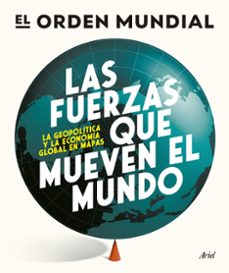GESTION Y CONTROL EN LA NUEVA ECONOMIA, INNNOVACION, INTEGRACION Y GLOBALIZACION
Innovación, integración y globalización
Editorial Universitaria Ramón Areces- 9788480044240
Sinopsis de GESTION Y CONTROL EN LA NUEVA ECONOMIA, INNNOVACION, INTEGRACION Y GLOBALIZACION
The strategies of management and control of the conventional economy had its origin and development in a more stable environment, in which the changes were susceptible to anticipate themselves, allowing time to plan and to audit. In the new economy, based in information and knowledge, the accelerated technological pro-gress, combined with a massive consumption, generates a new society that one may locate in an open environment of integration and globalisation where uncer-tainties, instabilities and changes are no longer susceptible to govern themselves from the strategies of management and control based on models and techniques that had their origin and development in scientific principles in which the success appeared associate to the order, the stability and the balance. In the new econ-omy, the uncertainty, the turbulences, the instabilities and the non-balance, al-though lack clear answers, have, nevertheless, to recognize themselves, to as-sume themselves and to manage themselves as forces that stimulate creativity and innovation. It is an immaterial economy in which the power now depends more of the information, of the knowledge and the innovation than of the means of pro-duction (capital and work) of the material economy.
This book after analyzing the evolution of management and control in relation to the evolution of the scientific process and the changes of the environment, from the industrial economy to the new economy of information and complexity, deals with the new strategies of management and control in which the future and the environment not only is anticipated, but is created.
The author, also, goes into the processes of integration and globalisation, where simultaneously appear contradictory processes: ascending ones, of integration and globalisation, and descendent ones, of decentralization and location. The models of management and control of the conventional economy are insufficient to manage these processes of expansion and contraction incorporating the values of integration, complex learning, creation of future and innovation that the new econ-omy of the complexity brings to us.
Science constitutes a vision of the world dependent on the realities, values and beliefs of every time, thus appearing, as a product of our cultural evolution, so that each model of scientific thinking generates political, social and economic models. For any neutral observer it is obvious that the models of management and control used today in the economic policy, in finance and in business, show a lack of ad-justment with the present realities, values and beliefs. The philosophy and the techniques of management and control have their origin and development in a simpler environment and scientific principles that were based on the order, the stability and the balance; but the tensions, instabilities and turbulences that char-acterise the environment of innovation, integration and globalisation of the new economy, make us introduce new models of scientific thinking based on principles of globality, non-balance and instability, in which the information of the environ-ment is fuelled by the managing performances, when becoming a endogenous variable, no longer allows to establish temporary horizons of management, nor the necessary learning time for the adaptation. All it demands new methods and tech-niques for the study of the emergent informal organisations that practice complex learning in the opportunity and the...
This book after analyzing the evolution of management and control in relation to the evolution of the scientific process and the changes of the environment, from the industrial economy to the new economy of information and complexity, deals with the new strategies of management and control in which the future and the environment not only is anticipated, but is created.
The author, also, goes into the processes of integration and globalisation, where simultaneously appear contradictory processes: ascending ones, of integration and globalisation, and descendent ones, of decentralization and location. The models of management and control of the conventional economy are insufficient to manage these processes of expansion and contraction incorporating the values of integration, complex learning, creation of future and innovation that the new econ-omy of the complexity brings to us.
Science constitutes a vision of the world dependent on the realities, values and beliefs of every time, thus appearing, as a product of our cultural evolution, so that each model of scientific thinking generates political, social and economic models. For any neutral observer it is obvious that the models of management and control used today in the economic policy, in finance and in business, show a lack of ad-justment with the present realities, values and beliefs. The philosophy and the techniques of management and control have their origin and development in a simpler environment and scientific principles that were based on the order, the stability and the balance; but the tensions, instabilities and turbulences that char-acterise the environment of innovation, integration and globalisation of the new economy, make us introduce new models of scientific thinking based on principles of globality, non-balance and instability, in which the information of the environ-ment is fuelled by the managing performances, when becoming a endogenous variable, no longer allows to establish temporary horizons of management, nor the necessary learning time for the adaptation. All it demands new methods and tech-niques for the study of the emergent informal organisations that practice complex learning in the opportunity and the...
Ficha técnica
Editorial: Editorial Universitaria Ramón Areces
ISBN: 9788480044240
Idioma: Castellano
Número de páginas: 208
Encuadernación: Tapa blanda
Fecha de lanzamiento: 07/09/2000
Año de edición: 2000
Plaza de edición: Madrid
Colección:
Monografías
Monografías
Serie/Saga: Ciencias Sociales y Jurídicas
Alto: 24.0 cm
Ancho: 17.0 cm
Grueso: 1.7 cm
Peso: 540.0 gr
Especificaciones del producto
Escrito por Ubaldo Nieto de Alba
Presidente del Tribunal de Cuentas. Catedrático de Economía Financiera y Contabilidad (UCM)
Ubaldo Nieto de Alba es presidente del Tribunal de Cuentas, Catedrático y Exdecano de la Facultad de Ciencias Económicas y Empresariales de la Universidad Complutense de Madrid, Profesor del Colegio Universitario de Estudios Financieros, Catedrático de Escuelas Universitarias, Estadístico Facultativo e Inspector de Finanzas del Estado. Autor de numerosos artículos, trabajos y libros, cuenta, entre sus obras destacadas más recientes, con Historia del tiempo en economía (Predicción, caos y complejidad)
Descubre más sobre Ubaldo Nieto de Alba Ubaldo Nieto de Alba es presidente del Tribunal de Cuentas, Catedrático y Exdecano de la Facultad de Ciencias Económicas y Empresariales de la Universidad Complutense de Madrid, Profesor del Colegio Universitario de Estudios Financieros, Catedrático de Escuelas Universitarias, Estadístico Facultativo e Inspector de Finanzas del Estado. Autor de numerosos artículos, trabajos y libros, cuenta, entre sus obras destacadas más recientes, con Historia del tiempo en economía (Predicción, caos y complejidad)
Recibe novedades de Ubaldo Nieto de Alba directamente en tu email
Opiniones sobre GESTION Y CONTROL EN LA NUEVA ECONOMIA, INNNOVACION, INTEGRACION Y GLOBALIZACION
¡Sólo por opinar entras en el sorteo mensual de tres tarjetas regalo valoradas en 20€*!






























